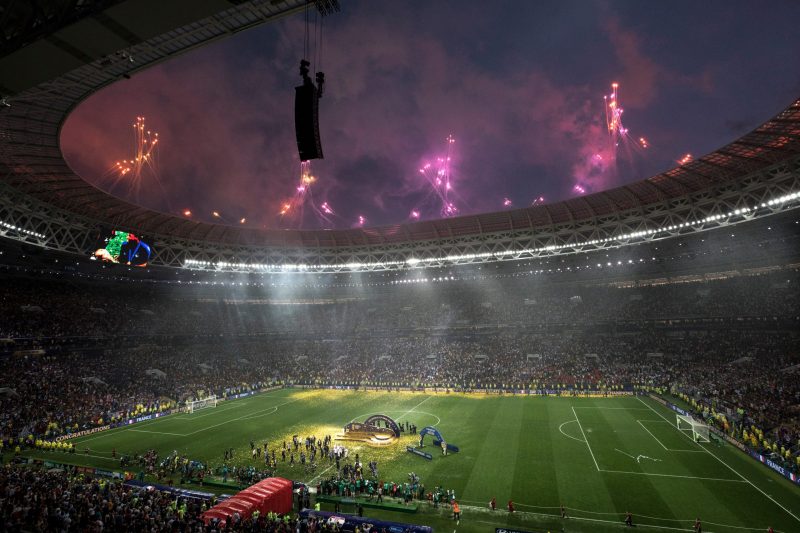MIDA Insights – Services

This site
is mobile
responsive

Globally, sports tourism is recognised as one of the upcoming tourism markets with significant economic potentials. In Malaysia, it is an important income generator in the tourism industry, contributing approximately RM5 billion annually and is supported by a broad global audience as sporting events usually attract domestic and international participants. Revenue generated ranges from accommodations, food and beverages, ticket/gate sales, sponsorships, media rights to merchandising and garment production.
Sports tourism can be categorised into ‘hard’ sports and ‘soft’ sports. Hard sports tourism attracts huge global participants, and people tend to travel together to a host country to attend these events. These are usually competitive international sports events such as Formula 1 Grand Prix and SEA Games. Meanwhile, soft sports tourism refers to recreational sports activities or getaways such as golfing, water-rafting and scuba-diving.
This type of sports tourism combines both sports activities and leisure, which typically lures tourists to exciting destinations known for its physical or natural attractions.
In 1998, the Commonwealth Games, known as the second largest sports event in the world after the Olympic Games, was held in Kuala Lumpur. This international sports event was an excellent example of hard sports tourism in Malaysia that created multifold values to the economy. The event attracted 6,670 athletes and officials, along with a substantial number of media and visitors locally and abroad. It was reported that a single international tourist who came for the Commonwealth Games spent an average of RM3,800 for the duration of 12.5 nights stay.
Following the successful international event, Malaysia kept up the momentum in 1999 by hosting the Formula One Championship Car Racing (F1 Grand Prix) in Sepang. The FI Grand Prix stimulated the expansion and recognition of the nation’s sports management capabilities. The premier event contributed more than RM500 million to the national economy, and the spill-overs continued to soar in years after. The F1 Grand Prix went on for another great 19 years. It attracted global die-hard fans who were fascinated with Malaysia, and many kept returning for their fun-filled vacations.
In 2000, the Langkawi Ironman Triathlon pulled in sports enthusiasts to test their fitness level in physical and mental strength. The long-distance triathlon race involved sports activities such as swimming, cycling and marathon. About 300 athletes from around the world took part in this triathlon.
Malaysia continued to host other international events including the Motor GP Racing Series (since 1991), Monsoon Cup-Racing Yachts (2005 – 2015), Badminton World Federation Tour (since 1992), Le Tour De Langkawi (since 1996), Royal Langkawi International Regatta (since 2003) and South East Asia-SEA Games. These prestigious events catalysed and created economic opportunities for various businesses including hoteliers, restaurateurs, boat makers, maintenance facilities, food supplies, crafts and textile merchandisers.
Recognising the investment potential of sports tourism, particularly football, Malaysia hosted the World Football Summit Asia (WFSA) in Kuala Lumpur on 29-30 April 2019. The event, first ever organised in Asia, attracted more than 2,000 professionals and influential experts of football clubs from over 50 countries. It contributes to opening new opportunities in Asia’s football and sports tourism sector.
Going forward, international sports events of 2019 include:
With so many exciting events lined up for 2019, increased tourist arrivals are expected in the second quarter of the year, whereby the economy stands to gain over RM40 million in revenue through accommodation, logistics and tourist spending.
International sports events undeniably bring many positive impacts to the host country. With Government funding most of the investments in sports facilities in Malaysia, there is a need to attract the private sector to invest and operate world-class sports facilities to bring in new sources of business opportunities and further boost sports tourism. Continuous initiatives are being carried out by various Ministries to push both international and domestic event organisers, conglomerates and companies to actively sponsor tournaments and develop local athletes as competitive global sportsmen or sportswomen. By establishing more quality sports avenues, this would, in turn, encourage Malaysians to keep fit and healthy, leading to a healthier lifestyle and creating a productive Sports Nation.
MIDA, the country’s principal investment promotion agency, stands ready to assist and facilitate business interests in the sports industry in Malaysia, particularly in the establishments of:
